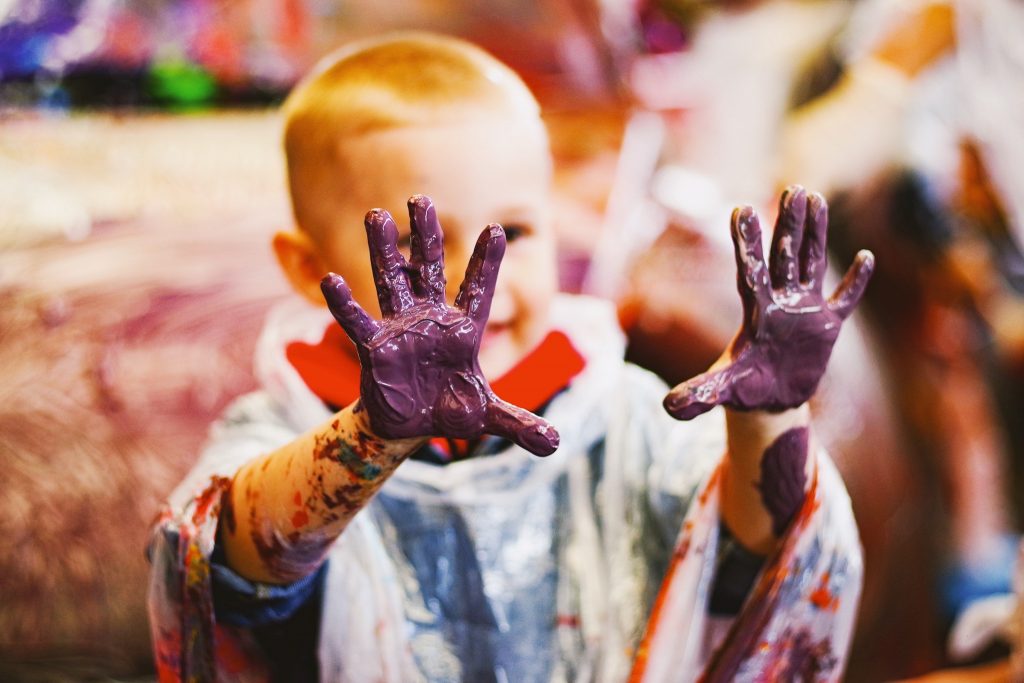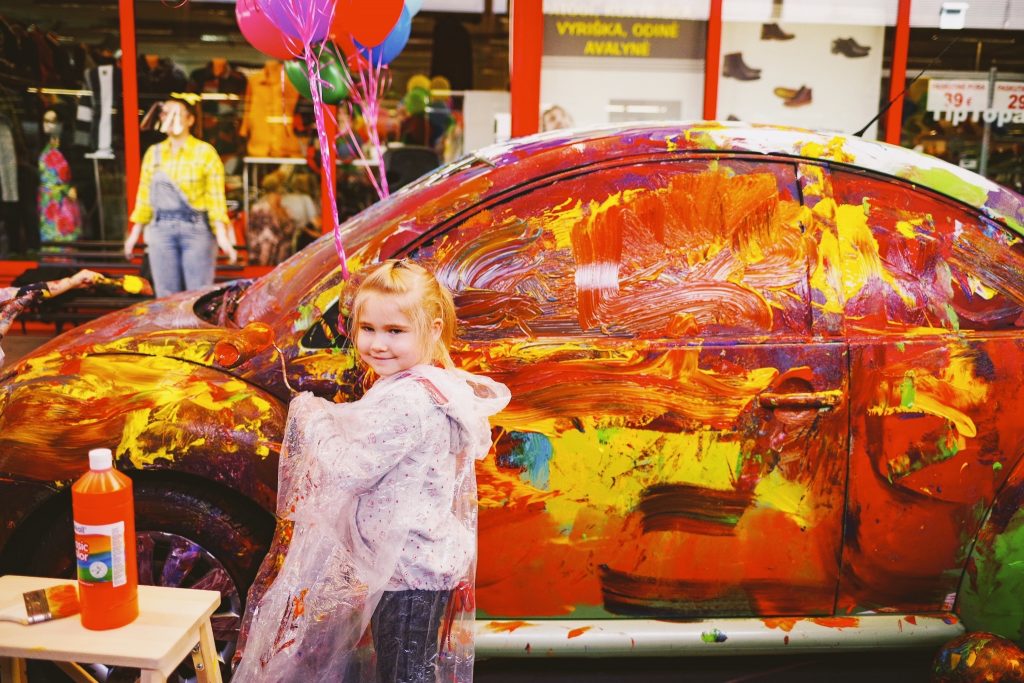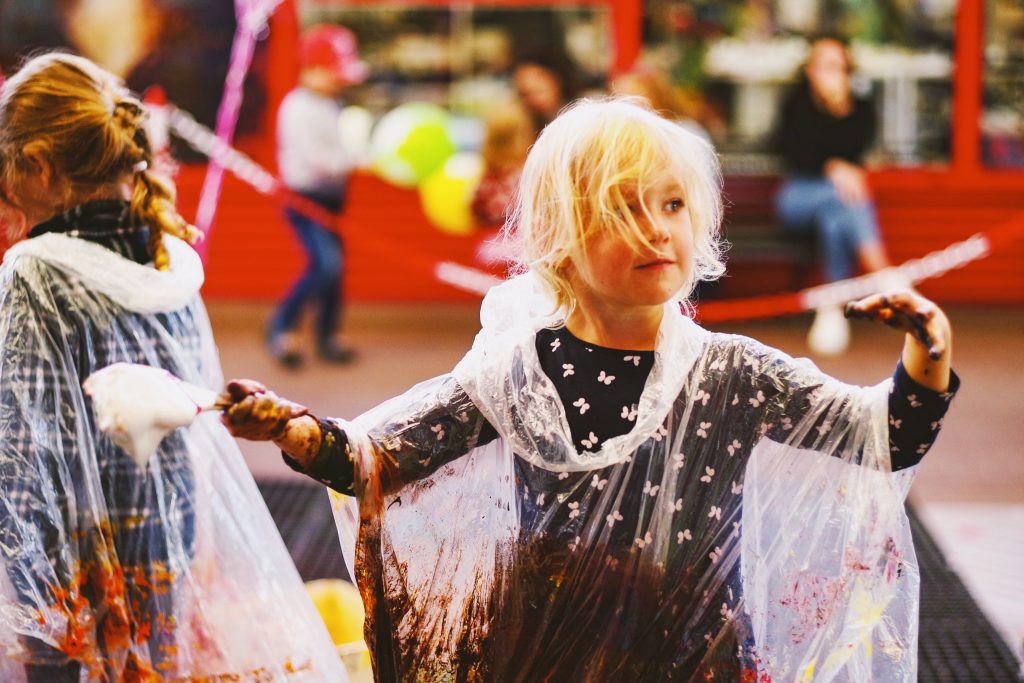“Children are naturally creative. It is our job to give them the freedom, materials and space to let their creativity blossom to its full potential.” – Jean Van‘t Hul
Would you give your child unrestricted freedom to play with paint, water, sand or glue? Usually probably not. Naturally, the mess left after such a play scares many parents. However, numerous studies and research show that messy art play is one of the best ways for children to learn and develop.
The main benefits that messy art play provides for children:
- it fosters children’s curiosity, imagination and exploration,
- it encourages communication and language development,
- it practices good concentration and nurtures future skills,
- it promotes physical development,
- it supports the ability to play independently and with other children.




There is no right way to carry out messy play. The only rule is letting children explore and experiment with different objects and raw materials without any end goals to restrict them.
Psychologists say that letting feel much more freedom than usual is beneficial for both adults and children. For children, this is especially important because of the developing personality. Such freedom to ‘splash’ without worrying about getting smeared or doing something wrong helps to get rid of stress that children experience, sometimes even more than adults, because children very often hear ‘no’: don’t do this, don’t do that, it’s not allowed, it’s unacceptable. Even if done in the right form, such a restriction leaves its mark on a child’s development. Unrestricted play fosters the child’s perception of freedom as one of the most important values and personal rights and understanding that exercising one’s freedom cannot interfere with others.
With raw materials such as sand, water, chalk, paint, play dough or paste, children’s imaginations can run wild and they can spend a long time exploring these, making their own discoveries, stimulating their curiosity, creativity and developing their knowledge.
With messy play, the sensory experience also helps children to understand their senses. By exploring how things feel, smell and taste, this type of play nurtures an awareness and understanding of the world that surrounds them.
Messy play is a sociable activity, whether with family or other children, it will enrich relationships through social interaction. As young children can’t explain things verbally, it allows them to share their discoveries in different ways through the use of objects and gestures.
High concentration levels are needed while engaging in messy play, from exploring objects and engaging all of their senses to thinking through their discoveries and trying to communicate them. This helps children to develop essential learning skills.
Hands-on play also offers many physical benefits, allowing your children to develop an awareness of their body and personal space whilst strengthening their muscle control. In messy play, children can play with tools to develop and practice their fine motor skills as well as their hand-eye coordination.
In an unrestricted play environment where there is no right or wrong way to do things, this is the perfect situation to allow children to play how they want to. By using their own mind to plan, explore, co-operate and problem-solve, they are building a self-confidence and self-esteem that will develop them as independent people as well as learn to become a useful member of a team.






The messy art play activity “Colorful Garage” is all about creative freedom and colorful joy for children! This playful marketing event was held this summer by Monartus team in Urmas Shopping Town in Kaunas.
Children painted a real car and other items normally found in the garage with safe water-based paint. It was a truly unique experience and unrestricted creative freedom for children. And parents were happy not having to clean up the mess that followed the play.


